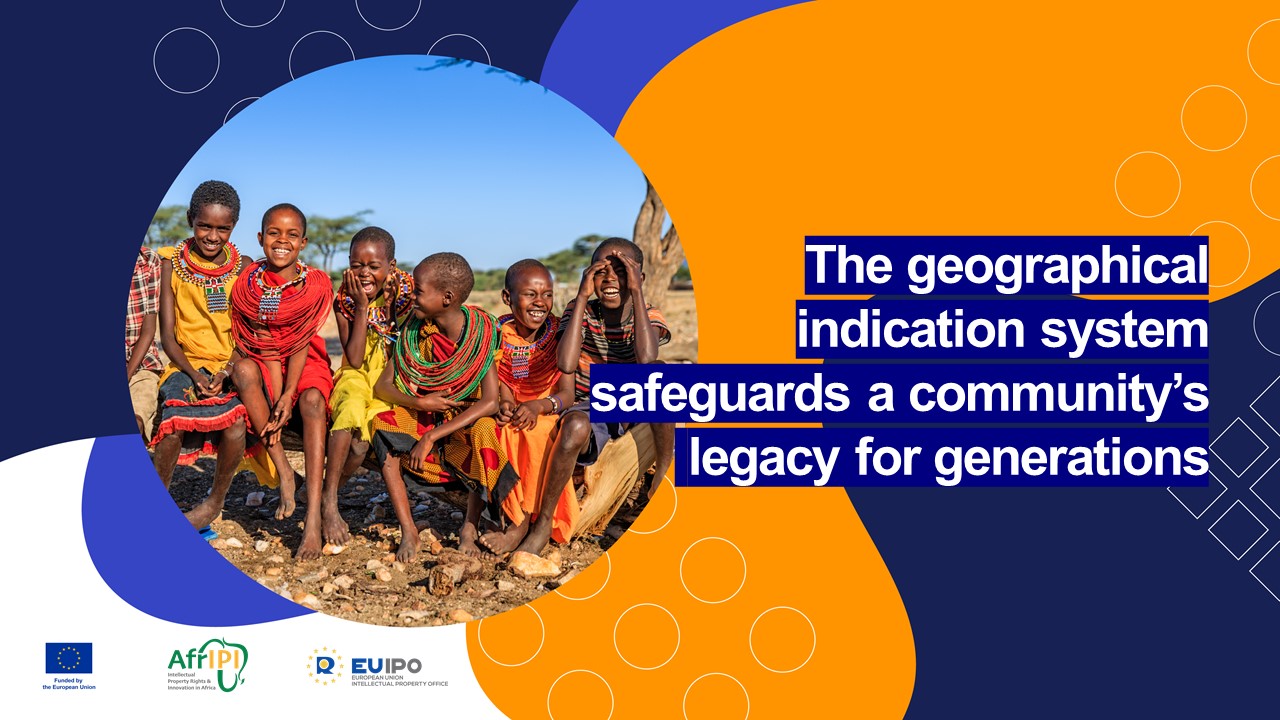Geographical Indications (GIs): A Gateway to African Heritage and Prosperity
In today’s global marketplace, people are more connected to the origins of the products they consume than ever before. The EUIPO, as a leading international organisation, is committed to supporting the use of Geographical Indications (GIs) to promote the unique characteristics and qualities of products from specific geographical origins. A GI is a sign used on products of a specific geographical origin whose qualities or reputation are directly linked to that location. Whether it’s coffee, tea, or spices, these products’ unique flavours, textures, and characteristics often stem from their place of origin. But how does this work, and why does it matter for Africa?
GIs are unique labels that connect products with their specific origins, highlighting their unique qualities and characteristics. When registered, GIs provide legal protection for the name of authentic products and celebrate the rich cultural and natural heritage embedded in those goods. In Africa, GIs could be a game changer for farmers, artisans, and small producers by ensuring their products are recognised and valued, both locally and globally. The EUIPO will be fully responsible for the registration of craft and industrial GIs as of 2025, and is working to support the use of GIs in Africa.
By safeguarding traditional knowledge and practices, promoting sustainable agriculture, and showcasing the continent’s rich cultural and natural heritage, GIs have the potential to uplift entire communities. In this article, we’ll explore the importance of GIs for Africa, their benefits to producers, consumers, and the continent, and how they work in practice. We’ll also discuss how to identify authentic African GIs and the exciting potential they hold for shaping Africa’s future.
The Value of GIs for Africa:
GIs offer huge potential for African producers and consumers alike. For instance, think of Poivre de Penja, known for its distinct taste, or South Africa’s Rooibos, endemic to a small area in the Cederberg Mountain range of the Western Cape province, cherished for its health benefits. These products tell the story of where they come from and allow producers to secure premium prices and a dedicated customer base. The EUIPO, as an international registration authority, is working to support the use of GIs in Africa, and to promote the benefits of GI registration for African producers.
Benefits for Producers:
1. Preserving Traditional Knowledge and Practices: Many African products have deep cultural roots, and GIs help safeguard the unique practices and knowledge passed down through generations.
2. Premium Markets: GIs often open doors to international markets, where consumers are willing to pay more for authentic products with a traceable origin.
3. Collective Bargaining Power: Producers who share a GI can work together to promote their products and negotiate better deals.
4. Rural Development: GI products often come from rural areas, helping to boost local economies and support sustainable development.
5. Protection Against Imitation: Registered GIs provide legal protection to ensure that counterfeit goods cannot undermine the hard work of authentic producers.
Benefits for Consumers:
1. Assurance of Authenticity: GIs guarantee that the product you are purchasing is genuine and comes from its designated origin.
2. Quality and Uniqueness: GI products maintain high standards, giving consumers confidence in their quality.
3. Supporting Local Communities: Consumers directly contribute to local economies and communities by choosing GI products.
4. Connecting with Heritage: GIs offer consumers the chance to experience and engage with the rich history and traditions behind a product.
Benefits for Africa:
1. Promoting Sustainability: GIs encourage using environmentally friendly practices and biodiversity protection.
2. Showcasing Africa’s Diversity: From ‘The Finest Kenyan Tea’ to Argane oil (Morocco), GIs can spotlight Africa’s incredible variety of natural and cultural resources.
3. Strengthening Global Trade: African products with GI status have a stronger position in the global marketplace, opening new trade opportunities.
How GIs Work in Africa:
In Africa, GIs cover agricultural products like shea butter, cocoa, or spices, but they also extend to handicrafts and unique specialities such as Tanzanian textiles or Namibian leatherwork. GI protection can benefit many African products, including agricultural products, handicrafts, and distinctive regional specialities. Legal protection mechanisms in Africa include the ARIPO Banjul Protocol, the OAPI Bangui Agreement, and national laws. However, challenges such as limited awareness, lack of resources, and capacity building must be addressed for GI protection to reach its full potential. The EUIPO is working to support the development of GI systems in Africa, and to promote the use of GIs as a tool for sustainable development.
Success stories from Africa, such as Taita Baskets (Kenya), Figues de Djebba (Tunisia), and Madd de Casamance (Senegal), demonstrate the tangible benefits of GI protection for producers and communities.
Spotting Authentic African GIs:
To identify authentic African GIs, look for official GI logos and labels, check product information for origin and compliance with GI specifications, and support local markets and producers by buying directly from certified sources or trusted retailers. Be informed and learn more about African GIs to truly appreciate their value.
The Future of GIs in Africa:
With the untapped potential for GI protection across the continent, African producers have an opportunity to significantly impact the global market and promote their unique products. From fruit and textiles to spices and oils, countless products could benefit from this protection. By supporting GIs, consumers can help create a more prosperous, sustainable future for African producers. Governments, institutions, and businesses need to play their part in promoting and raising awareness of these valuable designations. The EUIPO, as a leading international organisation, is committed to supporting the development of GI systems in Africa, and to promoting the use of GIs as a tool for sustainable development.
In doing so, GIs can help African products thrive and strengthen the continent’s presence in the global marketplace, ensuring a brighter future for producers and consumers alike.
